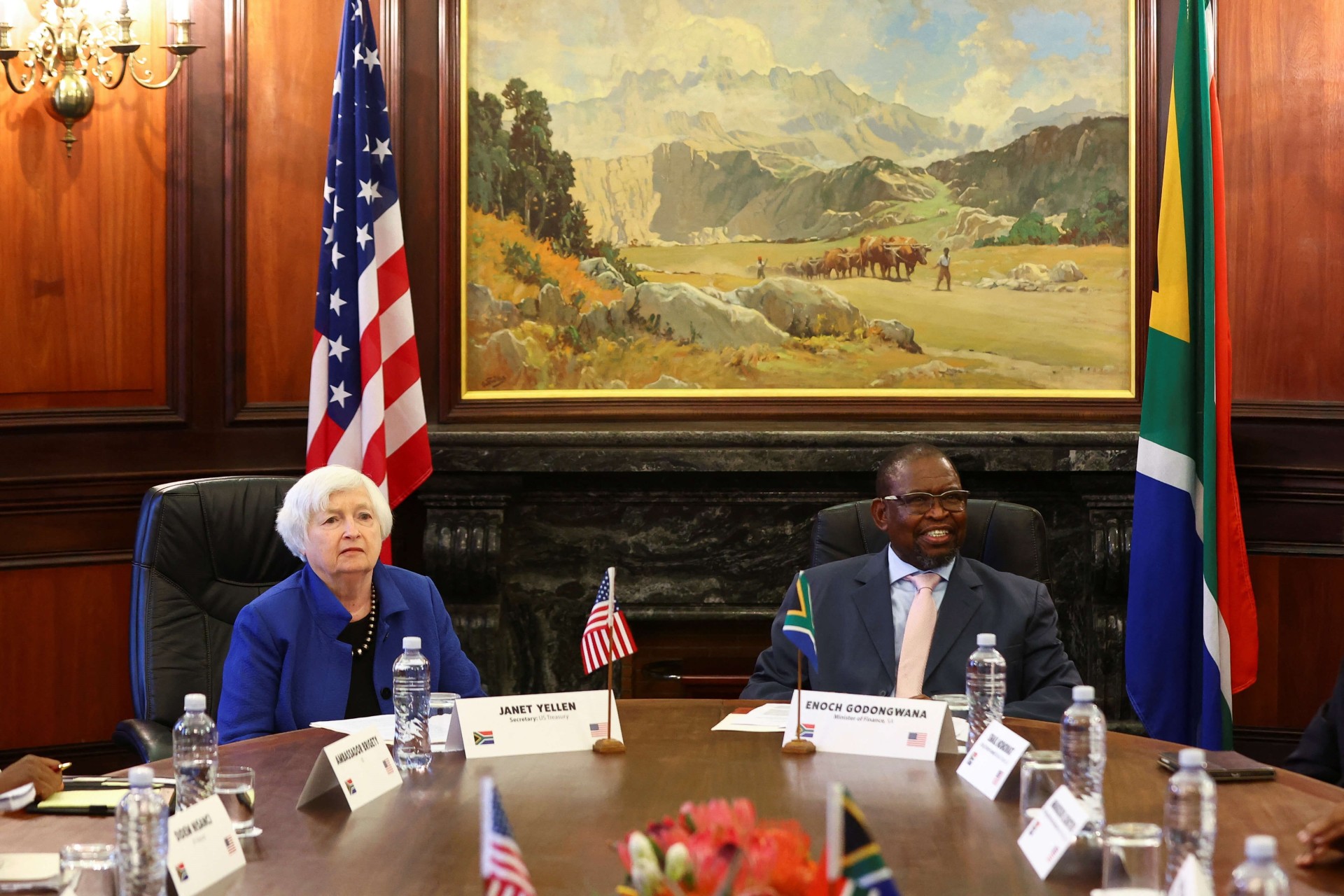The Limits of the U.S.-South Africa Relationship
The Biden administration’s attempts to build closer bonds with South Africa may not bear fruit, but it may be worth devoting more attention to nongovernmental actors.

By experts and staff
- Published
Experts
![]() By Michelle GavinRalph Bunche Senior Fellow for Africa Policy Studies
By Michelle GavinRalph Bunche Senior Fellow for Africa Policy Studies
It is difficult to imagine that the Biden administration is not disappointed in the South African government’s warm embrace of Russia in the midst of the ongoing invasion of Ukraine. Non-alignment is to be expected, although standing up for the principle that countries should not be able to invade and forcibly annex territory from smaller neighbors would not seem too ambitious a goal. But when Foreign Minister Naledi Pandor walked back South Africa’s initial call for Russia to withdraw on the grounds that maintaining that position would be “simplistic and infantile,” even as she defended plans to hold military exercises with Russia and China on the upcoming anniversary of Russia’s invasion, it didn’t read like an effort to avoid tensions between major world powers. It read like an act of solidarity with the Russian government.
Policymakers in Washington have significantly invested in cultivating warmer U.S.-South Africa relations at the highest level, believing that adding some personal chemistry to the mix of shared democratic values, strong commercial ties, and common security interests could bring new dynamism to the bilateral relationship. They also seem to have adopted a vision of South Africa as an important continental leader and gateway to Africa (although the idea of South African regional leadership is not always as well received in the rest of the continent as Washington seems to imagine).
But the relationship looks quite different from the perspective of South Africa’s leaders. The African National Congress’ deep-seated distrust of the United States, based on the historical reality of U.S. support for the apartheid regime, prevents many powerful South Africans from believing that they share much in the way of interests and values with the United States. They would rather focus on strengthening BRICS, with its uncomfortable mix of authoritarian and democratic states, in part as an explicit counterweight to the West.
The United States may need to lower its expectations about what can be achieved in the formal bilateral relationship. Of course, the duly elected representatives of the South African people should be engaged with respect, and a great deal of U.S. engagement still makes sense. For example, the Just Energy Transition Partnership with South Africa is an important effort and its success is clearly in the global interest. Continuing efforts to deepen commercial ties, especially in sectors that can help create jobs to chip away at South Africa’s 33 percent unemployment rate, are important to fending off the fragility and instability that run counter to U.S. interests. But a close partnership with South Africa’s government on reforming the rules-based international order to make it more just and effective is, for now, probably not in the cards.
Working to better understand the priorities and concerns of South Africa’s robust civil society, and to learn from it, is another promising path forward. These forces have been holding their government accountable, exposing and fighting corruption, standing up for judicial independence, and demanding action on gender-based violence. While understandably focused on domestic crises, South Africa’s population doesn’t necessarily see the world the same way its leaders do. Surveys suggest an improved and generally positive perception of the United States. They also reveal scant enthusiasm for emulating the characteristics of the Russian state.
Civil society in the United States was eventually able to see past myopic Cold War formulas and organize to oppose the appalling injustice of apartheid in South Africa, swaying enough elected officials to override a presidential veto and pass the Comprehensive Anti-Apartheid Act. American society eventually shifted Washington to the right side of history. Civil society in South Africa is by no means preoccupied with Pretoria’s policy on Ukraine, (although there has been a thoughtful and pointed domestic debate about it). It certainly is not totally aligned with the United States government. But civil society’s persistent demands for justice and efforts to make their democracy work for citizens suggest that an enduring agenda of shared values and interests exists beyond the governmental-to-government level. Over time, that agenda may influence the elements of the South African government’s foreign policy approach that excuse Russia’s violent imperialism.
